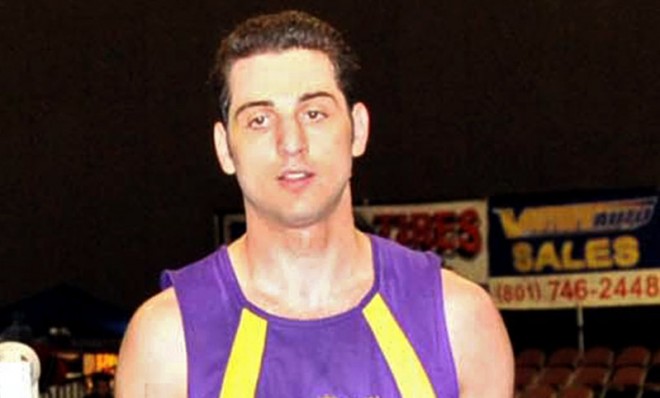Who is 'Misha,' the Armenian Muslim who radicalized Tamerlan Tsarnaev?
The Associated Press talks to the family of the alleged Boston bombers, and uncovers clues about a mysterious Islamist Svengali


A free daily email with the biggest news stories of the day – and the best features from TheWeek.com
You are now subscribed
Your newsletter sign-up was successful
The "why" behind the Boston bombings appears to be coming into focus.
On Tuesday, multiple newspapers and other news organizations reported that the surviving bombing suspect, Dzhokhar Tsarnaev, confessed to the crime and said that his older brother Tamerlan — killed last Friday in a violent shootout with police — was the mastermind. Unidentified government sources said that the brothers were "self-radicalized" jihadists, acting alone out of anger over the U.S.-led wars in Iraq and Afghanistan.
The Associated Press has uncovered one tantalizing detail that suggests Tamerlan's self-radicalization had an important supporting character: Misha. The single name comes from at least two family members who say they were once close to the Tsarnaev brothers: The now-famous Uncle Ruslan Tsarni and Elmirza Khozhugov, the 26-year-old ex-husband of Tamerlan and Dzhokhar's sister Aliina.
The Week
Escape your echo chamber. Get the facts behind the news, plus analysis from multiple perspectives.

Sign up for The Week's Free Newsletters
From our morning news briefing to a weekly Good News Newsletter, get the best of The Week delivered directly to your inbox.
From our morning news briefing to a weekly Good News Newsletter, get the best of The Week delivered directly to your inbox.
The Tsarnaev family was nominally Sunni Muslim, but never very religious, say the AP's Adam Goldman, Eric Tucker, and Matt Apuzzo.
Then, in 2008 or 2009, Tamerlan met Misha, a slightly older, heavyset bald man with a long reddish beard. Khozhugov didn't know where they'd met but believed they attended a Boston-area mosque together. Misha was an Armenian native and a convert to Islam and quickly began influencing his new friend. [AP]
Misha is a very common name in Russia — a shorter form of Mikhail — but come on, "there can't be that many bald, red-bearded Armenian Muslims in the Cambridge area," says Dan Amira at New York. Still, the AP has been unable to locate him after days of sleuthing, and if he's on the FBI's radar, they're not talking. What else do we know about this mysterious Svengali?
Britain's Daily Mail says Misha is "around 30" and is probably "based in a mosque that was a short drive from Cambridge." NBC News' Michael Isikoff — who calls the bearded convert "Mischa" — reports that Tamerlan started falling under the Armenian's spell as early as 2007, and he provides this juicy detail, from Uncle Ruslan: "Mischa presented himself as an 'exorcist' who specialized in 'removing demons from people's bodies.'"
Even without the exorcism and demon-removal, Misha is the strangest detail in this already bizarre story, says Trudy Rubin at the Philadelphia Inquirer.
A free daily email with the biggest news stories of the day – and the best features from TheWeek.com
We all know that converts can be more zealous than those born to a faith, but an Armenian native who converted to a radical brand of Islam? As the world knows, Armenian Christians suffered their own holocaust at the hands of Muslim Turks early in the 20th century, during the break-up of the Ottoman Empire. [Philly Inquirer]
National security writer Laura Rozen speculates on Twitter that Misha sounds like "the kind of mole Russia plants to keep [an] eye on emigre communities of concern," and could even be the source that tipped off Russia to Tamerlan's conversion to radical Islam in 2011, which prompted Russia's call to the FBI. "Coming from ex-police state, shouldn't [the] Tsarnaevs [have been] suspicious of [an] Armenian convert to Islam preaching 9/11 conspiracies at their table?"
Whoever he is — assuming he exists — Misha's influence over Tamerlan appears to have been profound. "Somehow, he just took his brain," Tamerlan's uncle Tsarni tells the AP. Tsarni says that once Misha came on the scene, Tamerlan stopped listening to him and even his own father. Khozhugov, the former brother-in-law, agrees:
When Misha would start talking, Tamerlan would stop talking and listen. It upset his father because Tamerlan wouldn't listen to him as much.... He would listen to this guy from the mosque who was preaching to him. [AP]
Misha reportedly told Tamerlan that music isn't kosher in Islam, so Tamerlan stopped making and listening to music and dropped out of music school. He also started reading both radical Islamist publications as well as Alex Jones' conspiracy-oriented Infowars website. Khozhugov says Tamerlan even tried to get a copy of the 1903 Russian anti-Semitic hoax The Protocols of the Elders of Zion, which claims that Jews are plotting to take over the world.
"Misha was important," Khozhugov tells the AP. "Tamerlan was searching for something. He was searching for something out there." Now, lots of people are searching for Misha.
Peter has worked as a news and culture writer and editor at The Week since the site's launch in 2008. He covers politics, world affairs, religion and cultural currents. His journalism career began as a copy editor at a financial newswire and has included editorial positions at The New York Times Magazine, Facts on File, and Oregon State University.
-
 ‘Restaurateurs have become millionaires’
‘Restaurateurs have become millionaires’Instant Opinion Opinion, comment and editorials of the day
-
 Earth is rapidly approaching a ‘hothouse’ trajectory of warming
Earth is rapidly approaching a ‘hothouse’ trajectory of warmingThe explainer It may become impossible to fix
-
 Health insurance: Premiums soar as ACA subsidies end
Health insurance: Premiums soar as ACA subsidies endFeature 1.4 million people have dropped coverage
